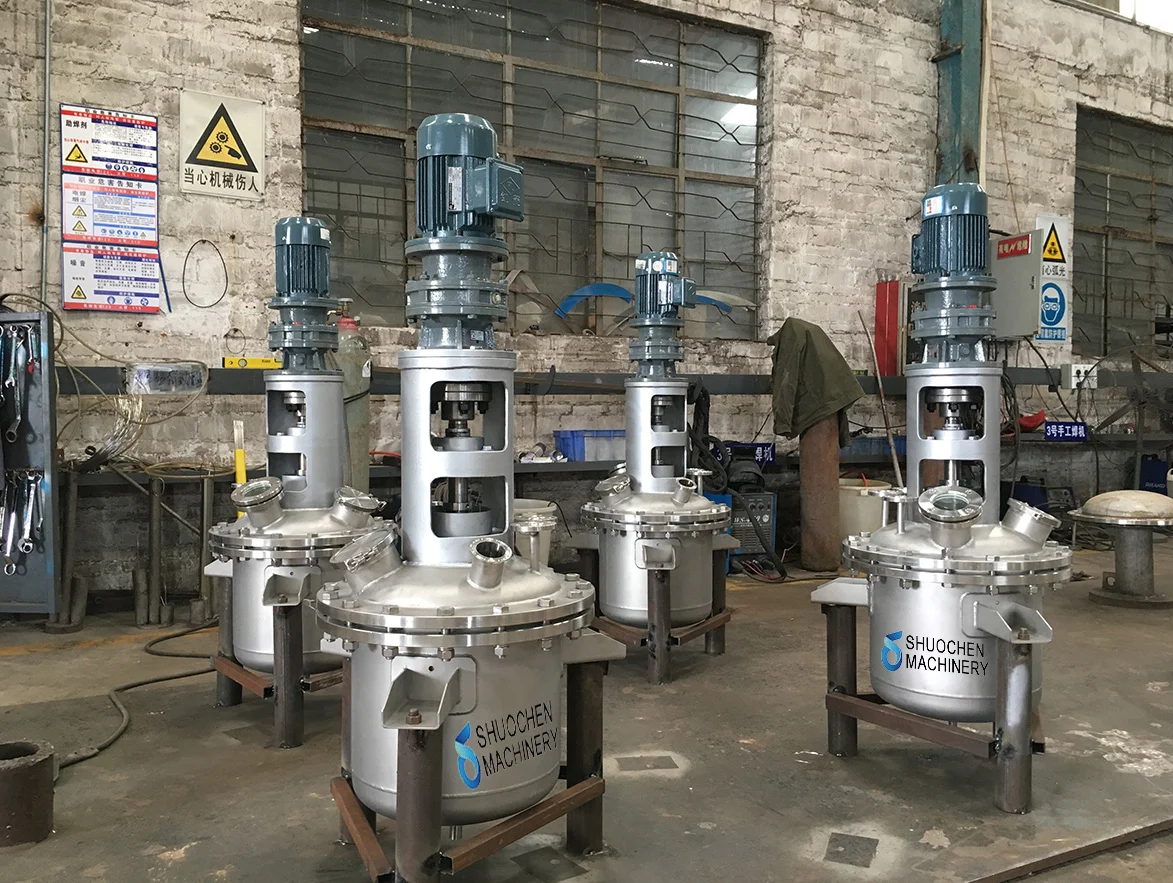In the world of chemical, pharmaceutical, and materials processing, reaction kettles are indispensable pieces of equipment. These vessels enable precise control over temperature, pressure, mixing, and reaction time—critical factors in producing consistent, high-quality products across various industries.
Whether you're developing new drugs, processing chemicals, or producing advanced materials like lithium battery anode coatings, understanding the role and capabilities of a reaction kettle is essential. In this article, we’ll explore what a reaction kettle is, how it works, and why it's so widely used in modern industrial manufacturing.

What Is a Reaction Kettle?
A reaction kettle, also known as a reactor vessel, is an enclosed container used to carry out chemical reactions under controlled conditions. These kettles can handle a wide range of temperatures and pressures, and often incorporate stirring mechanisms, heating systems, and cooling jackets to support optimal reaction environments.
Common materials used for reaction kettles include:
-
Stainless steel (for high corrosion resistance and hygiene)
-
Glass-lined steel (for handling aggressive chemicals)
-
Special alloys (for high-pressure or high-temperature applications)
Core Functions of a Reaction Kettle
-
Controlled Heating & Cooling
Reaction kettles are equipped with external jackets or internal coils for heating and cooling. This ensures that exothermic or endothermic reactions remain stable and within desired parameters. -
Efficient Mixing
Most kettles feature integrated agitators or mixers to ensure reactants are uniformly distributed, preventing hot spots or incomplete reactions. -
Pressure Regulation
Some reactions require vacuum or pressure control to accelerate reaction rates or modify product characteristics. Reaction kettles are built to handle these variable conditions safely. -
Safe Containment
Especially important in chemical and pharmaceutical industries, reaction kettles are designed with robust sealing mechanisms to prevent leaks, contamination, or hazardous exposure.
Applications in the Chemical & Pharmaceutical Industries
Reaction kettles are used across a wide array of production processes:
-
Synthesis of chemical intermediates and APIs
-
Polymerization reactions
-
Fermentation and bioprocessing
-
Paints, coatings, and adhesives manufacturing
They’re also increasingly critical in the lithium battery industry, where uniform and precise material processing is essential.
Reaction Kettles in Lithium Battery Material Production
A notable application of reaction kettle technology can be found in the production of lithium battery anode materials. Companies like Shuochen Machinery Equipment Co., Ltd. have been at the forefront of innovation in this field. While Shuochen’s core expertise lies in coating equipment for lithium battery anode materials, their understanding of thermal control, material consistency, and mixing parallels many of the core functions of reaction kettles.
Shuochen has developed vertical and horizontal coating machines using proprietary and proven technological solutions—recognized by multiple domestic and international anode material manufacturers. Their equipment ensures that slurry application and material processing are precise, consistent, and scalable, a principle also vital in chemical reaction processing using reactors.
The crossover in technology emphasizes how modern material production processes—such as those in battery tech—benefit from advanced reaction and coating systems, ensuring high product performance and efficiency.
Choosing the Right Reaction Kettle
When selecting a reaction kettle for your plant or lab, consider the following:
-
Capacity: Depending on batch size or continuous processing.
-
Material Compatibility: Corrosion resistance, pressure and temperature thresholds.
-
Heating Method: Steam, electric, or thermal oil.
-
Automation: Integrated sensors and PLC systems for better control.
-
Maintenance: Ease of cleaning, sealing design, and part accessibility.
Conclusion
Reaction kettles remain a cornerstone of chemical and pharmaceutical manufacturing—offering precision, safety, and flexibility. Their integration into modern production lines, particularly in high-tech sectors like lithium battery anode materials, highlights their continued evolution and relevance.
As industries seek greater control, efficiency, and product quality, advanced equipment providers like Shuochen Machinery Equipment Co., Ltd. are demonstrating how targeted innovation can support these goals—whether through coating machines or reactor-like systems.
If you're scaling up your production or optimizing your process, understanding the role and potential of reaction kettles is a smart place to start.
www.scjxne.com
Foshan Shuochen Machinery Equipment Co., Ltd.

